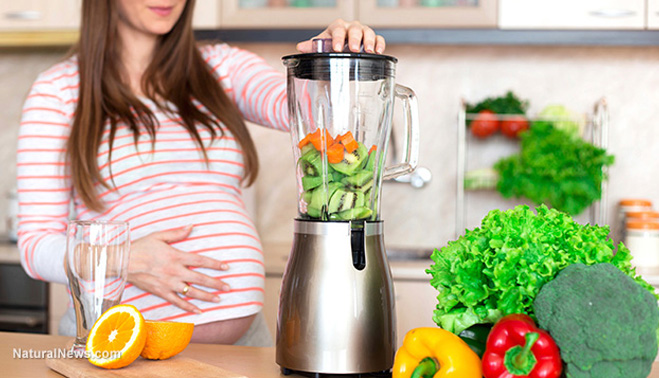![]() Home > Health
Home > Health
Why Pregnant Women Should Be Avoiding BPA

![]() May 4th, 2016 | 09:23 AM |
May 4th, 2016 | 09:23 AM | ![]() 2060 views
2060 views
UNITED STATES
You've probably heard of the toxic chemical bisphenol A, and may already try to avoid it as much as you can. But if you are pregnant, you should especially up your efforts to stay clear of this hormone-disrupting chemical.
BPA is a nearly ubiquitous industrial chemical used in everything from clear plastics, to metal cans, to paper receipts. It has been shown to leach from these objects onto the skin or into food and beverages, and from there to travel into the body. According to the Centers for Disease Control and Prevention, 93 percent of people in the United States have detectable levels of BPA in their blood.
Why to avoid it
As with all endocrine (hormone) disruptors, BPA poses the greatest risk to young children, and particularly to developing fetuses. That's because the hormones involved in fetal development act in incredibly tiny quantities, on the order of a tenth of a trillionth of a gram. As a hormone mimic, BPA has been shown to cause reproductive and developmental disorders in unborn children, particularly of the brain and prostate gland. The brain changes caused by BPA can lead to permanent behavioral changes.
Of course, BPA is dangerous for older children and adults, as well. According to a recent study conducted by the National Food Institute, Technical University of Denmark, BPA is toxic in much lower concentrations than those set as "safe" by many governments. The researchers found that even at very low doses, BPA caused female rats to put on extra weight, and made their behavior become more masculine. Male rats exposed to the same levels of BPA had lower sperm counts and more mammary tissue.
The low doses used in the study were equivalent to estimates of typical human exposure.
"The health risks of bisphenol A are especially of concern for highly exposed consumers," researcher Ulla Hass said. "This applies in particular to pregnant or nursing women and children, who are especially sensitive to the adverse effects of bisphenol A that may occur at low exposure levels."
How to avoid it
The BPA source that has gotten the most attention is also the easiest to avoid: plastic water bottles. Use a glass or stainless steel water bottle instead. Avoid metal bottles that are not 100 percent stainless steel; these are likely lined with bisphenol A-derived resins.
Plastic food storage containers should also be avoided, and pregnant women and children should never eat food that has been stored or heated in plastic. Glass, ceramic and stainless steel containers are all safe for food storage.
Infants should never be allowed to chew on hard plastic toys, and glass or stainless steel baby bottles are preferable to plastic.
Another notorious source of BPA is metal food and beverage cans, which are lined with resins made from the chemical. Buy fresh, dried or frozen foods, or buy foods in glass containers rather than cans (or plastic).
Unfortunately, cans (or plastic bottles) labeled "BPA free" aren't any safer, and may actually be worse. Most of these use closely related chemicals that carry many of the same risks, but are less well studied.
The last major source of BPA to avoid is receipts printed on thermal paper, whether from an ATM or store. Whenever possible, decline a receipt. If you need to touch a receipt, move it quickly to an isolated location (like a plastic bag), or make a copy and discard the original if you need the receipt for your records. Wash your hands as soon as possible after touching a receipt but do not use hand sanitizer, which increases BPA absorption.
You should also always wash your hands after touching cash. The widespread practice of storing receipts in wallets causes BPA to rub off onto cash stored in the same wallet.
Source:
courtesy of NATURALNEWS
by David Gutierrez
If you have any stories or news that you would like to share with the global online community, please feel free to share it with us by contacting us directly at [email protected]